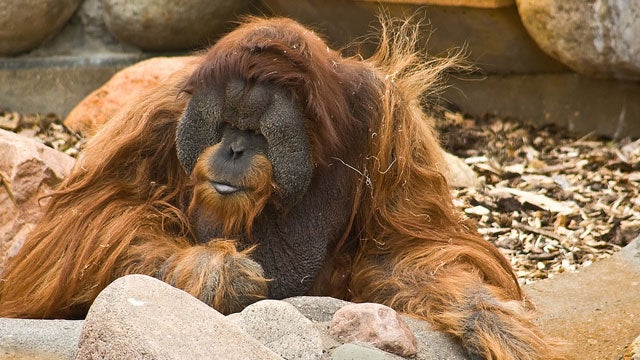Handing out candy to trick-or-treaters this year could inadvertantly threaten the world’s orangutan population, reports , as candy production often involves destroying the endangered species’ habitat.
Wild orangutans in Malaysia and Indonesia have seen their forests chopped down to make room for trees producing palm oil, a staple ingredient for Halloween candy because it lacks trans fat—which the U.S. has required companies to list on nutritional labels as unhealthy. Since most palm oil is farmed in Malaysia and Indonesia, buying candy that contains the popular oil could encourage further habitat destruction.
The El Paso Zoo in Texas—which features orangutans—has compiled a of candies containing non-sustainable palm oil, including Skittles, Snickers, and Milky Way, produced by Mars.
The candy company stated in an e-mail that “Mars is committed to working with the broader community towards 100-percent traceable sources of palm oil that are free of deforestation, expansion on carbon-rich peatlands, and the violation of human and labor rights,” adding that it will begin using by the end of the year.

